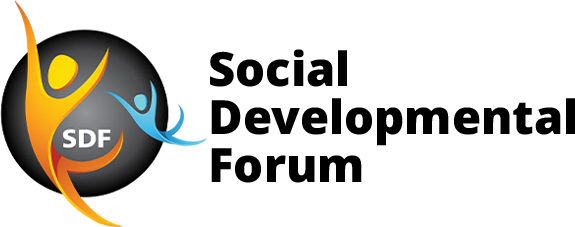“Safe Environment”; a youth-led intervention to address a pressing sanitation issue at Rodelf Filter displacement center

A group of young activists led the “Safe Environment” initiative around Rodelf Filter School’s entrance in Deir Al-Balah, middle Gaza, which aimed to address the severe sanitation crisis affecting displaced residents in the school by resolving the accumulation of wastewater inside and around the school, which had created significant challenges for thousands of displaced individuals and residents. It also hindered access to Al-Aqsa Martyrs Hospital, the main medical facility in the middle area of the Gaza Strip, as the school is located on the main road leading to the hospital.
The youth-led intervention was supported through the Initiatives Bank model established by SDF, implemented in collaboration with Save Youth Future Society (SYF), and funded by the United Nations Population Fund (UNFPA) and Education Above All (EAA).
Long-awaited solution
The initiative unfolded amid a high record of complaints and inconveniences communicated by displaced residents at the school, who had endured months of hardship due to the foul odors, stagnant wastewater, and the spread of diseases, compounding the daily struggles of displacement and war.
Ibrahim Qeshta, a displaced resident from Beit Lahia, said, “The sanitation issue was a major challenge for everyone in the shelter. The stench and the inability to drain wastewater impacted our children disrupted our daily tasks, and deprived us of a good sleep.”
Nehad Kilani added, “The situation at the school was unbearable. The sewage pools exhausted us on the street and within the school. My children significantly suffered because of it.”

This issue burdened displaced residents and affected people in the surrounding area, including street vendors and patients approaching the hospital. The accumulation of garbage and wastewater hindered pedestrian and ambulance movement, further disrupting life there.
Positive reflections
The initiative’s team coordinated with a specialized company to repair the sewage infrastructure. Before the company started, the youth activists cleaned the streets and removed garbage to prepare the area for repairs. After resolving the issue, the initiative concluded with a recreational day organized by the activists and SDF’s Youth Network. The event featured songs, games, puppet shows, and clowns to celebrate the enhanced environment and uplift the spirits of displaced children.
Residents positively reflected on this change through feedback, where they called for pursuing efforts to mitigate the burden of displacement. “After implementing this initiative, we could see the significant change we made. The odors were gone, and the wastewater issue had just been resolved. Ibrahim Qishta, a young participant.

Nineteen-year-old Tala Zaid shared her thoughts, saying: “The crisis caused terrible odors and diseases among children, not to mention the exhausting mosquito. The initiative has addressed this and protected us from possible health issues.”
Displaced from Jabalia, Anwar Abu Al-Nasr, noted, “My daughter, who has a disability, was severely affected by the smell. Even walking to the hospital was difficult. The initiative facilitated movement and alleviated the unbearable odor.”
Raed Kilani, representative of the shelter administration team, extended their appreciation to the SDF and the young volunteer for addressing a pressing issue that plagued displaced residents.”

The initiative’s coordinator, Ahmed Muslim, described it as a “national and community-driven Palestinian initiative.” He contended that its feasibility derives from the road’s critical importance as a main artery for movement in the area: “The initiative began by restoring the street and its surroundings, followed by comprehensive sewage system repairs. The cooperation of the displaced residents and shelter management significantly contributed to the initiative’s success,” he said.
An initiatives bank to support youth initiatives:
The Social Developmental Forum has established the Initiatives Bank to fund and support youth-driven community initiatives; 14 initiatives were implemented across northern and southern Gaza, beginning in early December 2024 and continuing through the month. Supported by the Initiatives Bank, these projects aim to address micro-community issues and enhance the well-being of youth and residents amidst the ongoing challenges of displacement and the aftermath of the Israeli war on Gaza since October 7, 2023.

